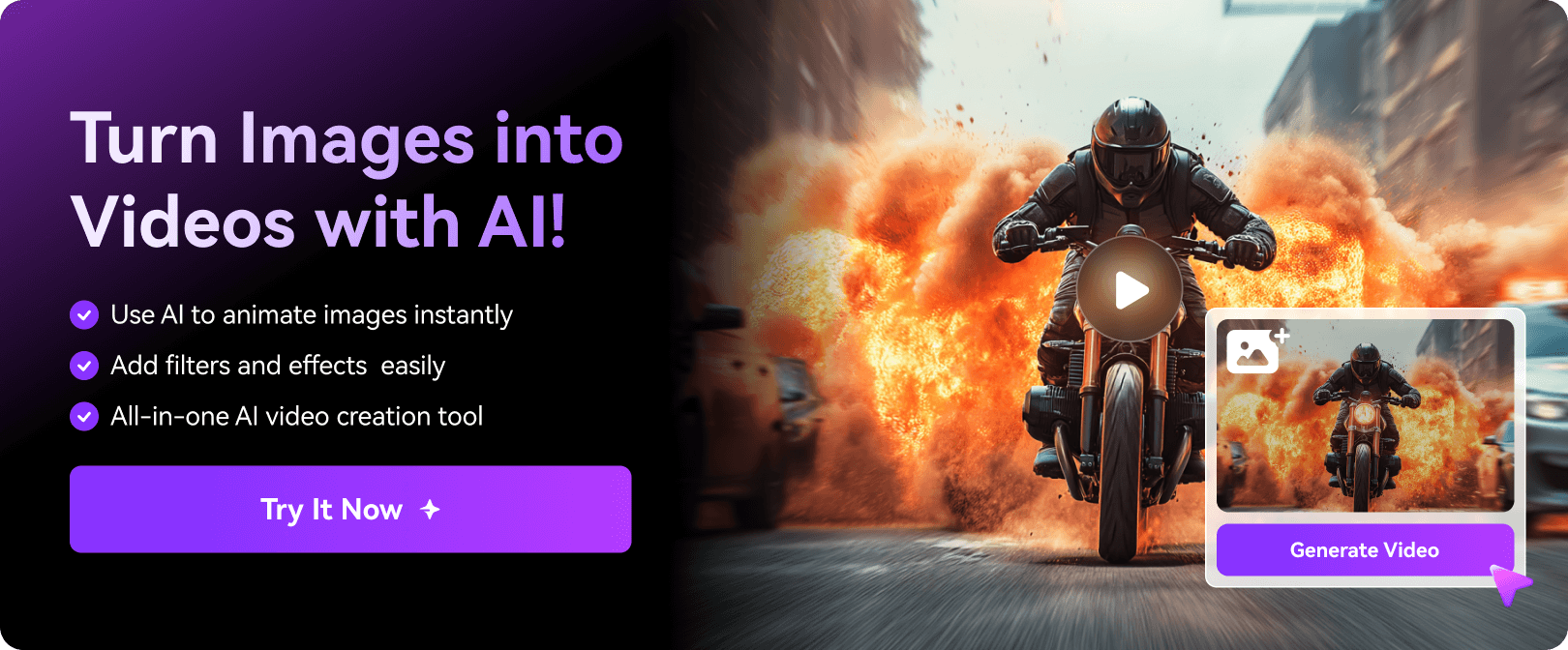Incorporating images into your website is essential for several reasons, including enhancing user engagement, improving user experience, and aiding SEO. However, using images responsibly and ensuring they are high quality and legally obtained before using them on your website is essential.
You can find online photos that you can use with websites that provide images that you can use for your website photo. We will tell you the types of image licenses you might know about and the top list of free websites for online images. We will give you all the details you need to know.
In this article
Part 1. Get to Know the Types of Image Licenses
Before using any images you find online for your website, you need to pay attention to the different types of image copyright licenses. This section will briefly explain each copyright image license that can be used for free.
1. Public Domain
Images in the public domain are free to use by anyone for any purpose without the need for permission or attribution. Simply, the creator has moved their work into the 'public domain' which is suitable if you are looking for a free photo website.
2. Creative Commons (CC) Licenses
A Creative Commons license is a type of public copyright license that allows for the free distribution of a copyrighted work. Authors use CC licenses to grant others the rights to share, use, and build upon their creations. There are several types of Creative Commons licenses, each offering different levels of permissions and restrictions.
| CC0 (No Rights Reserved) | The creator has released all rights to the work, placing it in the public domain. You may use, modify, and distribute the work without permission or attribution. |
| CC BY (Attribution) | You can use, distribute, and build upon the work, even commercially, as long as you credit the creator. |
| CC BY-SA (Attribution-ShareAlike) | You can use, distribute, and build upon the work, even commercially on the condition that you give credit to the creator, and license your new creation on the same terms. |
| CC BY-ND (Attribution-NoDerivs) | You can use and distribute the work, even commercially, on condition that you give credit to the creator. However, you cannot modify the work. |
| CC BY-NC (Attribution-NonCommercial) | You can use, distribute, and build upon the work non-commercially, as long as you credit the creator. Commercial use is not allowed. |
| CC BY-NC-SA (Attribution-NonCommercial-ShareAlike) | You can use, distribute, and build upon the work non-commercially, on condition that you credit to the creator and license your new creations under identical terms. |
| CC BY-NC-ND (Attribution-NonCommercial-NoDerivs) | You can use and distribute the work non-commercially, as long as you credit the creator. You cannot modify the work or use it commercially. |
3. Royalty-Free
Royalty-free images are licensed for a one-time fee. This allows flexibility for you, once you have paid for the license, you can use the image multiple times. However, there may be limitations on how you can use the images, such as limited to certain types of projects or distribution methods.
4. Royalty-Free Extended License
The Extended Royalty-Free License allows for broader usage rights in comparison to the standard royalty-free license. This may include a larger number of prints, use in merchandise, or other expanded uses not covered by the standard royalty-free license.
5. Rights Managed (RM) License
Rights Managed (RM) licenses grant users specific rights to use an image under detailed conditions, including the number of copies printed, duration, geographic region, and industry in which the image will be used (purpose).

Summary:
- Public Domain: Free for any use without permission.
- Creative Commons (CC): Different levels of permissions and requirements for attribution and use.
- Royalty-Free: One-time fee for expansive use, with some restrictions.
- Royalty-Free Extended License: Expanded usage rights above standard royalty-free.
- Rights Managed (RM): Specific, detailed usage rights, often with exclusivity.
From the different types of image copyright licenses above, you can suit your purposes. Make sure the images you use comply with the specific license. Let's take a look at 5 free photo websites online.
Part 2. 5 Free Website for Pictures Online
Using a free website for pictures offers a variety of benefits and conveniences to enhance your content without spending money. They provide accessibility, legal security, high-quality images, and a broad range of options.
1. Unsplash
Unsplash is a platform powered by an awesome community to share photography worldwide under the Unsplash license. Unsplash as a web free photo offers a variety of free high-resolution images where you can search for images from different themes and sources.

2. Pexels
Pexels is a free photo website that provides thousands of stock photos that can be accessible to all internet users. Pexels will help you find a free stock photo and video for your website.

3. Pixabay
Pixabay is a free website for pictures, illustrations, videos, and music sharing. Besides photos, you can search for other content media sharing, making it ideal for a wide range of personal and commercial projects, a fully packaged website for you.

4. Flickr
Flickr is a popular platform for sharing photos and videos, where you can upload, organize, tag, and share your visual media. Flickr is not just a free photo website, it also allows you to social network like following users, commenting on photos, joining groups of similar interests., and participating in discussions.

5. Wikimedia Commons
Wikimedia Commons is a free media repository managed by the Wikimedia Foundation. It is widely recognized as a freely accessible media resource that supports a variety of uses from educational to commercial. Wikimedia Commons not only offers free online images, but it also provides usable sounds, videos, and other media files.

Bonus Tip: Modify Your Images and Make Them Talk
Wouldn't it be insane if the picture you just downloaded could speak? You can make an ordinary image more attractive. This can happen with the help of advanced AI that works like magic in just a few clicks. Wondershare Virbo Photo Talking is a powerful tool that turns static images into talking photos by adding lip-syncing and realistic facial animations. If you are interested in making your moments like an engaging story, you can try the Wondershare Virbo Photo Talking feature.
What can Wondershare Virbo Photo Talking do?
- Facial recognition technology identifies faces, generating accurate and lifelike animations.
- Automatically synchronizes the mouth movements in the photo to match the audio input.
- You can customize the style with various options to personalize your animation.
- Wondershare Virbo can convert the text you input into speech for use in talking photos.
- Wondershare Virbo offers diverse accents and languages, allowing you to customize according to your needs.
Want to try out this fantastic feature? You can visit the official website of Wondershare Virbo and start generating your static image into a dynamic video. Here is the simple step-by-step guideline to create talking photo videos using Wondershare Virbo.
Step 1. Go to Wondershare Virbo website and click "Generate AI Video Online” to try it on the web. Or try the desktop version on your Windows for a smoother experience.
Make Photo Talk Online Try in App Free
Step 2. After reaching this section, click the “Talking Photo” feature.

Step 3. Upload an image you want to use as your talking avatar. Or you can try the various templates provided

Step 4. Customize your video the way you like
You can add text and choose an available voiceover for your video or use your voice. Then, adjust the accent, speed, and volume as you want. After that, you can also include background music and subtitles on your video.

Step 5. Download your talking photo video
Once you have customized your talking photo video, click “Create Video” and wait a few seconds. Your talking photo video is ready for download.
Make Photo Talk Online Try in App Free
Conclusion
The availability of website photos is essential in improving user experience and engagement. Note that it is important for you to know the license that applies to the photos you want to use for websites or other needs.
You can use the Public Domain for free use without permission and you can find it on a free website for pictures, make sure you download images on a trusted platform.
Make Photo Talk Online Try in App Free
FAQ
-
Do I need a license to use images for personal use?
A formal license is generally not required for personal use, such as viewing or printing images for personal needs. However, always ensure that you respect the copyright and license terms associated with any images you use. When in doubt, choose images that are marked as public domain or you can use reputable free photo websites such as Unsplash, Pexels, and Pixabay. -
Do image licenses expire?
Image licenses may have different terms and conditions, including duration, depending on the type of license. Public Domain and Creative Commons Licenses (CC) have no expiration. For Royalty-Free Licenses, they usually do not expire. Once you purchase a royalty-free image, you can use it according to the agreed terms. Lastly, Right-Managed Licenses can have specific terms and conditions, including duration. -
What are the consequences of using an image without the proper license?
Using images without proper licenses may be liable for copyright infringement and can result in legal action, including fines and lawsuits. To avoid these consequences, it is crucial to respect copyright laws, use appropriately licensed images, and understand the terms of any licenses you obtain. -
What should I do if I want to use an image but can't find a suitable license?
To avoid legal and ethical issues, always make sure you have the right license or permission to use images. If you can't find a suitable license, explore alternatives such as public domain images, Creative Commons (CC) licensed images, contacting the owner or copyright holder for permission, creating your content, or using licensed content from reputable sources. Taking these steps will help you use images responsibly and legally.



